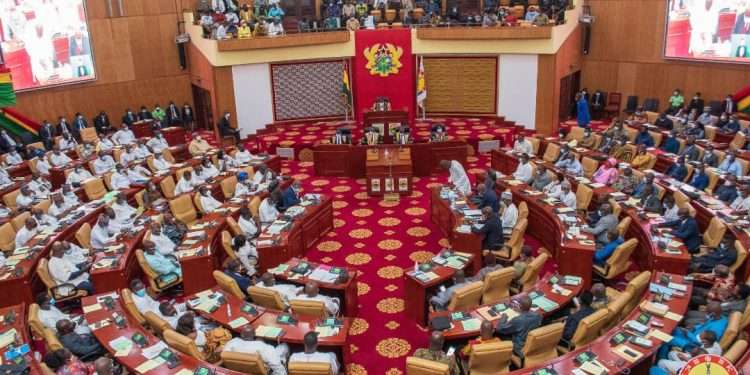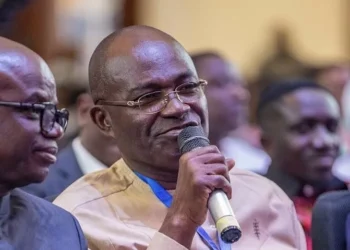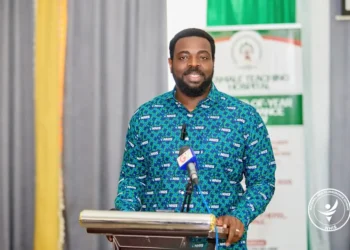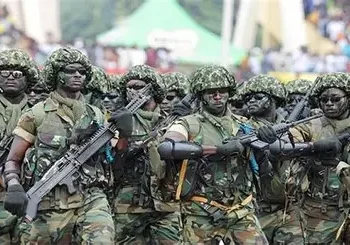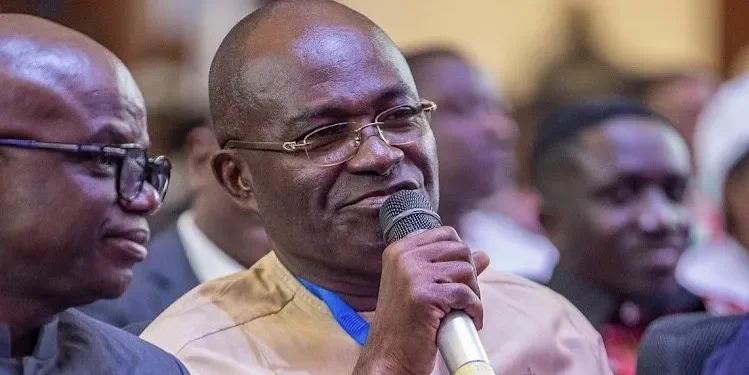A session of the Parliament’s Appointments Committee was thrown into turmoil today as heated exchanges between the Majority and Minority forced a temporary suspension of the vetting of Supreme Court judge nominee, Justice Sophia Bernasko Essah.
The interruption came after Bawku Central Member of Parliament (MP), Mahama Ayariga, raised a constitutional objection against the President’s authority to appoint more than nine Justices to the Supreme Court, triggering an hour-long standoff.
The session, which had been convened to vet two nominees—Justice Sophia Bernasko Essah and Professor Richard Frimpong Oppong—was abruptly halted when Ayariga, a National Democratic Congress (NDC) MP, challenged the legality of President Nana Akufo-Addo’s decision to expand the number of Justices on the nation’s highest court.
His objection was met with fierce resistance from the Majority side, leading to a back-and-forth exchange that overwhelmed the committee chair and brought proceedings to a standstill.
In his objection, Ayariga cited the 1992 Constitution of Ghana, specifically Article 128 (1), which states that the Supreme Court shall consist of the Chief Justice and “not less than nine” other Justices.
“There is nowhere in this Constitution that the President is given the power to increase the number [of judges] beyond the nine plus one. I challenge anybody in this room to show me any provision in this Constitution that states otherwise.”
Mahama Ayariga, Bawku Central Member of Parliament (MP)
The crux of his argument was that while the Constitution sets a minimum number of Justices, it does not explicitly grant the President the authority to appoint more than the stipulated minimum.
Hon. Ayariga emphasized that his challenge was not aimed solely at President Akufo-Addo, noting that previous Presidents had also appointed more than nine Justices to the Supreme Court.
Majority’s Rebuttal and Suspension of Proceedings
The Majority members, however, countered Ayariga’s argument, insisting that the vetting process should continue as scheduled. Majority Leader Alexander Afenyo-Markin argued that the Appointments Committee’s mandate was limited to vetting the nominees and reporting to the plenary, not adjudicating constitutional interpretations.
“We are not determining whether we are going to take a matter under a certificate of agency which will be determined by a committee. No, this is vetting. Madam Chair, I am ready for her to start.”
Majority Leader Alexander Afenyo-Markin
Despite Afenyo-Markin’s assertion, the tension in the room escalated, with MPs from both sides engaging in a heated verbal exchange.
The chair of the committee, evidently overwhelmed by the intensity of the debate, called for a temporary suspension of the session to allow tempers to cool and for the committee to decide on how to proceed.
After over an hour of deliberations behind closed doors, the committee reconvened to determine the way forward. Following a voice vote, it was decided that the vetting process would resume, but Hon. Ayariga’s legal objection would be included in the committee’s final report to Parliament.
This compromise allowed the vetting to continue without completely disregarding the constitutional concerns raised by the Minority.
Justice Sophia Bernasko Essah and Professor Richard Frimpong Oppong subsequently took their turns before the committee to answer questions regarding their eligibility and suitability for the Supreme Court.
The vetting process, however, remained under the shadow of the unresolved constitutional debate, which is likely to feature prominently in subsequent parliamentary discussions.
This incident underscores the ongoing tension between Ghana’s executive and legislative branches, particularly regarding judicial appointments. The constitutional ambiguity highlighted by Ayariga’s objection raises questions about the balance of power in the appointment process and the extent of executive authority.
As Parliament prepares to deliberate on the committee’s report, the constitutional questions raised today will undoubtedly be revisited, setting the stage for a potentially contentious session in the days to come.
How these issues are resolved will have significant implications for the judiciary’s role in Ghana’s democracy and the separation of powers enshrined in the Constitution.
READ ALSO: US Expects Ceasefire Talks To Continue As Planned



